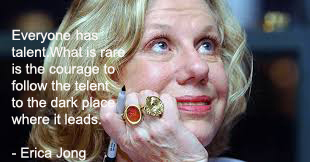
The change world has witnessed in 20th century is for more predominant than in 5 centuries earlier. But 21st century is generating a far more visible variance. With the change happening so fast, every organization has to keep pace surviving. Till the last century any enterprise would be satisfied by a certain percentage of incremental growth every year in production, sales or profits. That was a linear growth. But in the current century entrepreneurs are hungry for exponential growth. So the game of the business has undergone a drastic change. Accordingly the enterprise owners have changed their HR policy and motivation techniques.
 Employee motivation till now:
Employee motivation till now:
Motivation has always been recognized as essential driver for management. In order to ensure that the workforce move ahead as a team and contribute to the organization’s objectives. The business leaders recognized and carried out the certain procedures for enhancing productivity and keep to the staff motivated. These were positive initiatives which can be summarized as under:
i) First on the list is that the employees must have the feeling that the management recognizes that they are significant part of the organization. They contribute productively to the company’s mission.
ii) A person who is made to feel important applies his/her mind while performing any task. Further, application of mind results in the person enjoying the work which in turn motivates.
iii) Listening to the juniors promotes real participative conversation. The manger is able to understand their team. They know what to communicate and how to communicate to move the wheel of progress.
iv) A policy of systematic engagement encourages staff to take help of seniors at the time when it is needed. The efficiency increases and so also the satisfaction of the staff members.
v) In traditionally managed family organization the owners would make their children to start from the bottom. If it is an engineering organization, working at the shop floor would be the first step for induction in the enterprise, and then gradually upwards. This helped workers to have a positive attitude towards the organization.
vi) An experienced senior was given the responsibility of mentoring. The mentor would ensure that the newcomer is exposed to each department. Doing the work is the best way to understand how to perform it. This would be considered as personalized training. All newcomers would be exposed to it irrespective of who they are.
vii) Positive feedback helped to keep anyone motivated. But appropriate criticism when necessary formed a part of training. This too ensured that person did not lose direction.
viii) Proper compensation and reasonable periodic enhancement too were taken care of. If a person is not able to meet family expenses, there would be some kind of pressure which dissociates and breaks the bond.
ix) All organizations need to outsource some of their activities. In times gone by the owners would allow the senior managers to start such small ancillary units and use the services or products. It would provide additional income. This also served to strengthen the bonds.
In the competitive business environment today, organizations which are hungry for growth have to adopt aggressive policies. Performance, sales and the bottom line are the chief parameters for appraisals. Generally, the CEO is engaged with clear understanding of producing some specific results. His/her compensation is fixed as per the promised results. So, it becomes their duty to live up to the promise. Fat compensation command fat results. Here, starts the story of Greed and Fear. For many organizations these two tools work as the chief motivators.

Fear and Greed
Fear and greed are two primal emotions which have been used as strong motivators for people to act. Normally insurance business relies on fear, stock market on greed. But today every CEO tends to use these.
The CEO who is hired the by the management using the above two tools, he/she uses the same for their subordinates. How else they would achieve some deadly targets? Due to fierce competition in the industry CEO and all have to slog and work like automatons 24×7. The good packages become just enough to meet the growing needs of the upscale lifestyle fear of losing the job becomes rampant. The situation has its heavy toll on the working people. Meeting impossible deadlines become deadly and people suffer. The story doesn’t end here. It only begins.
Most people engaged in the enterprise work under constant pressure and become stressed. Whenever genuine results are possible, it happens, but where the situation looks impossible, window dressing is employed. Manipulative reports and figures resembling mirage are displayed. An illusion of reality is created, which may last for a short time or at times even for a longer duration. But how long can illusory, self satisfying techniques last? The best known example of deceptive reporting is the story of subprime loan sanctioned in USA due to which some of the biggest banks fell.
Thanks for reading.
Month: September 2016
Five Steps to turn Failure in to success
Failure is one necessary step towards achieving anything which is significant. Failure needs to be accepted, as fear of failure never allows you to take any risks. It pushes you into inaction which is the bane of life. Inaction is worse than procrastination. In any one’s life, procrastination is the enemy of a strong personality. It fills you with guilt which goes on increasing. Though failure has many negative effects, there are also some positive outcomes. In this essay, I would like to discuss both the negative and positive attributes of the failure. More importantly, I will put forth some suggestions on how we can leverage the positive aspects of failure and use it as a tool to propel us towards achieving our mission.
Negative aspects of failure are listed below:
i) It discourages you. Sometimes you get into depression as you feel you are good for nothing.
ii) It affects our positivity. It tends to weaken our hope and brings in a streak of pessimism in our life.
iii) We start avoiding company of our successful peers which dampens our spirits. This in turn weakens our personality.
iv) Sometimes, it may make you feel that life is good for nothing. It is not worth living. You want to escape. In worst cases, it pushes people to try to commit suicide.
v) In order to cover the loss due to failure, it may make the victim reckless. Trying to cover losses without proper thinking, the person plunges into bigger problems, debts etc.
vi) Often, failure leads to addiction. In a bid to escape facing the realities of life the ‘failed person’ resorts to drinking, drugs etc.
vii) Failure brings social stigma whereby people look down upon you. No one likes to be in the company of someone who has failed. Failure is not accepted as a part of struggle for success is some societies.
viii) It is sad but the victim is often ridiculed to make matters worse. Instead of helping to pull the person out of trouble those who had harbored some kind of grudge enjoy putting spanner in the wheel. The victim suffers even more.
ix) Extreme anxiety attacks the mind and the victim starts doubting everything. Suspicion brings further misery to the life of the victim.
x) Besides, failure may result in sleeplessness. It aggravates the difficulties and problems. It also affects health and weakens the mind.
So much for the negative impact of failure. Positive results of failure are also many, if the failure is viewed in the proper perspective. How the failure impacts a person or an organization depends on your immediate response after the failure takes place. If you own the failure and analyze the reasons, failure turns a teacher. Best lessons are drawn only from failures. But if you start the blame game and assign reasons of your failure to some people, sabotage or even the circumstances to give yourself a clean chit the failure snowballs into worse failure.
These are many reasons why failure should be viewed positively. I will list 5 which are most important according to some psychologists. These are:
i) As said above, failure acts as a teacher. Follow the lessons learned in a failed attempt and don’t repeat the same. Lessons learnt during failed projects, when put to practice and adopted suitably, shape the character.
ii) Failure inspires you to innovate. If one thing does not work, you try another. All scientific inventions are based on this aspect a failure. Thomas Edison once said, “I have not failed. But I have found out 10,000 ways in which things don’t work”.
iii) Failure is used for quality enhancement. For any product, the quality department will try to find out the circumstances in which the product fails. But for software programmers this is just a necessary tool.
iv) Failure enables individuals to face facts of life. It helps you to understand that struggle in life is necessary. This is the only way you can come up.
v) The worst factor in anyone’s life is fear. Failure helps you to overcome your inherent fear and makes you courageous. Further, you develop courage to take calculated risks in life. This is necessary as the dictum – no risk no gains.
Having talked about the negative and positive aspects of failure, let us deal with the question, “How negative effects of failure can be countered and how can we turn failure into success? I give below the answer as 5 steps that we must take to achieve the desired results.
Step I. Be prepared to accept failure. For any venture which poses some risks you must be prepared for the worst at the beginning itself. In this case you will be able to handle the situation because you are not taken by surprise.
Step II. Create a strong desire in your mind to succeed in spite of the grave difficulties on the way. Become prepared to face the difficulties and work hard. Don’t expect the task to be easy. You strong desire will help you to adopt this attitude.
Step III. Open your mind to embrace any change that you may have to make in your plan of action. World is changing fast and there is no science to inform you what changes will take place and when. Your open mindedness will come to your rescue.
Step IV. Develop your mind power. Comfort or discomfort resides only in mind. While a heavy traffic cannot deter someone from enjoying listening to the music in cool comfort of an air-conditioned car, it can be a harrowing experience for another soul who is not prepared to adopt the change.
Step V) Last but not the least, choose a role model. There are many great world leaders who have embraced many failures before coming out as great winners. Abraham Lincoln, Winston Churchill, Nelson Mandela or Steve Jobs- who was turned out the company he started, are just a few examples.
Therefore, choose your role model. Read and understand his/her life. Draw your own lessons and go ahead with your projects.
When we focus only on the positive attributes of failure during the journey of the work involved, we will be rid of the harmful impact of so many of the negative attributes of failure. So our attitude and choice of actions make all the difference.
Thanks for reading.
All About Talent

Everyone is endowed with one talent or another. It’s important for us to discover the hidden talent. In fact the main purpose of education should be to identify the talent of an individual. However in our education system the students at school rarely identify what they have to do in life. Except for a few of them who become clear about what they have to do after the school well in time. In such happy cases, some of them are helped by their parents and some close relatives and a few of them by the teachers.

If the inherent talent is recognized and the child is encouraged to pursue a career in line with the inherent talent, he/she is bound to do very well in life. When you pick up a career where you enjoy your job, you are likely to excel in the profession.

Cicero, the great philosopher had said 2000 years ago:
“Natural ability without education has more often attained to glory and virtue than education without natural ability”
It is true even today. Success of persons like Steve Jobs and Bill Gates confirm the veracity of the statement. Whatever you are by nature keep it; your line of talent lies in what the nature has intended you to be.
It is often said that you cannot come out of mediocrity if you are or have to pursue a career which is not to your liking. There is one school of thought that says “if you so desire you can start liking anything that you may be doing”. I don’t entirely deny the truth of the statement. But it is easier said than done. It may be possible, in rare cases, only with consistent efforts and training under a mentor. So, do what you can to discover your talent sooner than later, and leverage it.

Thanks for reading.